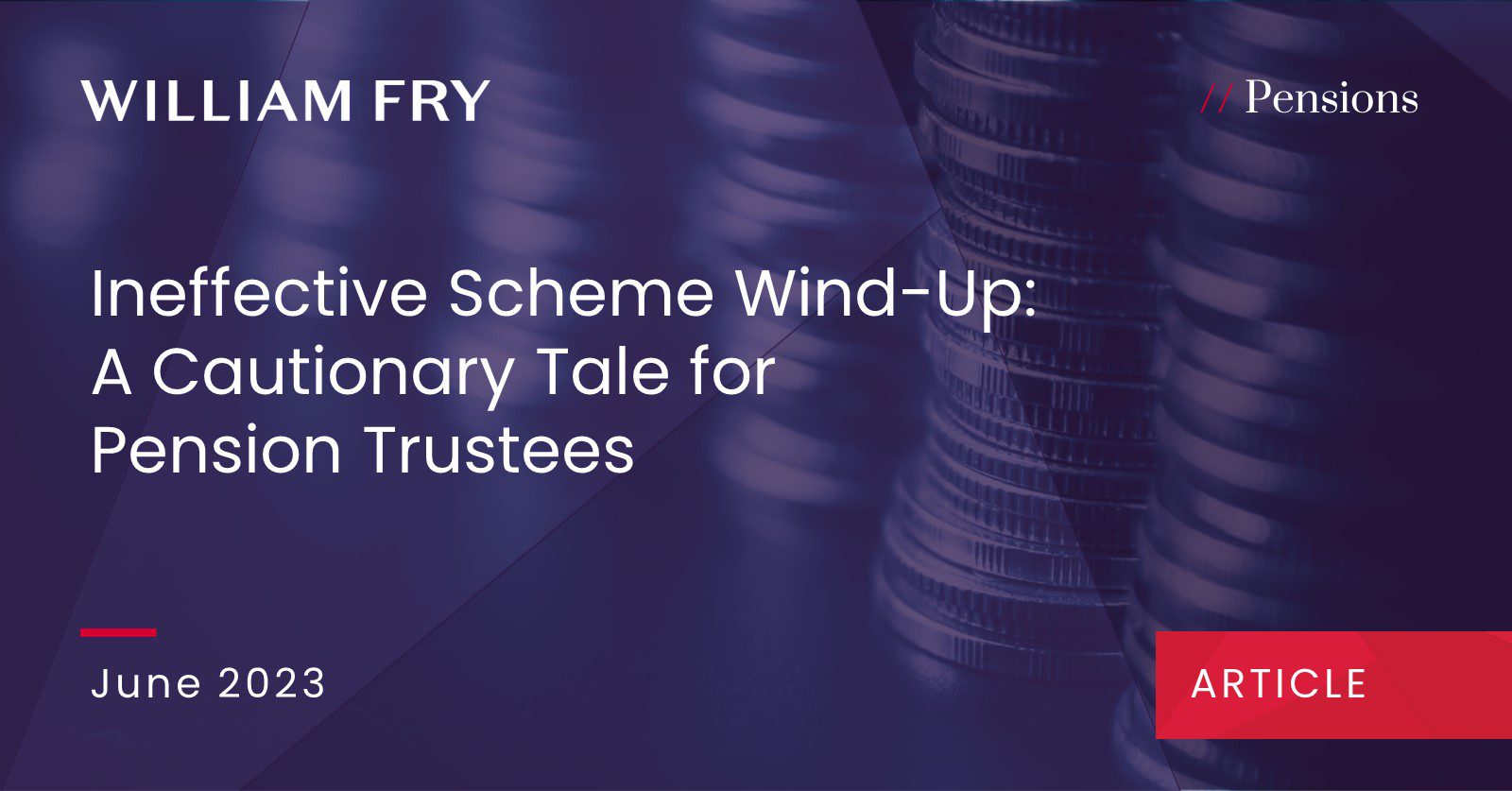The recent High Court case of O’Rourke v Meadowvale Pension Scheme [2023] IEHC 148 (the Case) found that a deed purporting to wind-up a pension scheme over a decade ago was not legally effective.
The trustee had failed to properly transfer certain assets out of the scheme before attempting the wind-up, so the trust (and trustee obligations) continued.
The Case concerned a small, self-administered pension scheme. The main assets of the scheme were shares in a private company registered in South Africa. The trustees sought to transfer those shares to a PRSA before the purported wind-up. All parties accepted that the transfer of part of the shares was not valid and effective, as it did not follow the restrictions in a shareholders’ agreement. The High Court had to decide if these assets remained in the hands of the trustees or if they would revert to the employer or the State.
The Court concluded that the trustees continued to hold those assets. Judge Eileen Roberts held that the deed of wind-up did not terminate the scheme as the deed was “fundamentally flawed” being incorrectly based on the premise that all trust assets had been distributed.
Only part of the scheme assets had been validly transferred out. This partial transfer fell foul of Revenue’s prohibition on spilt transfers. Consequently, Revenue did not accept it as a valid wind-up. The Court acknowledged that Revenue’s conclusion was not determinative of the legal position but that it sat comfortably with the legal conclusion and avoided any conflicts with the scheme’s regulatory approval system.
Conclusion
The Case is a timely reminder for trustees (and the employers who may indemnify them) of the importance of ensuring transfers are validly made, and no assets remain in a scheme at its determination.
In the current Irish pensions market, many employers are transitioning from group pension schemes to master trusts for future pension provision due to the governance and cost burden arising from IORP II compliance. The Pensions Authority has offered a “safe harbour” from IORP II requirements for group schemes that complete the transfer and wind-up by 31 December 2023. As such, there is increasing pressure on employers and trustees making that switch to complete transfers and wind-ups before the year-end deadline.
In these pressurised circumstances, this decision highlights the importance of following the necessary legal formalities in that process. Notwithstanding what a deed of termination or deed of discharge may seek to effect, if assets remain in the scheme, the trust continues and trustees cannot be validly discharged, resulting in continued liability exposure for employers.
For more information on scheme wind-ups and master trust transition, please contact Ian Devlin, or your usual William Fry contact.
Contributed by Jane Barrett
Recommended Insights












